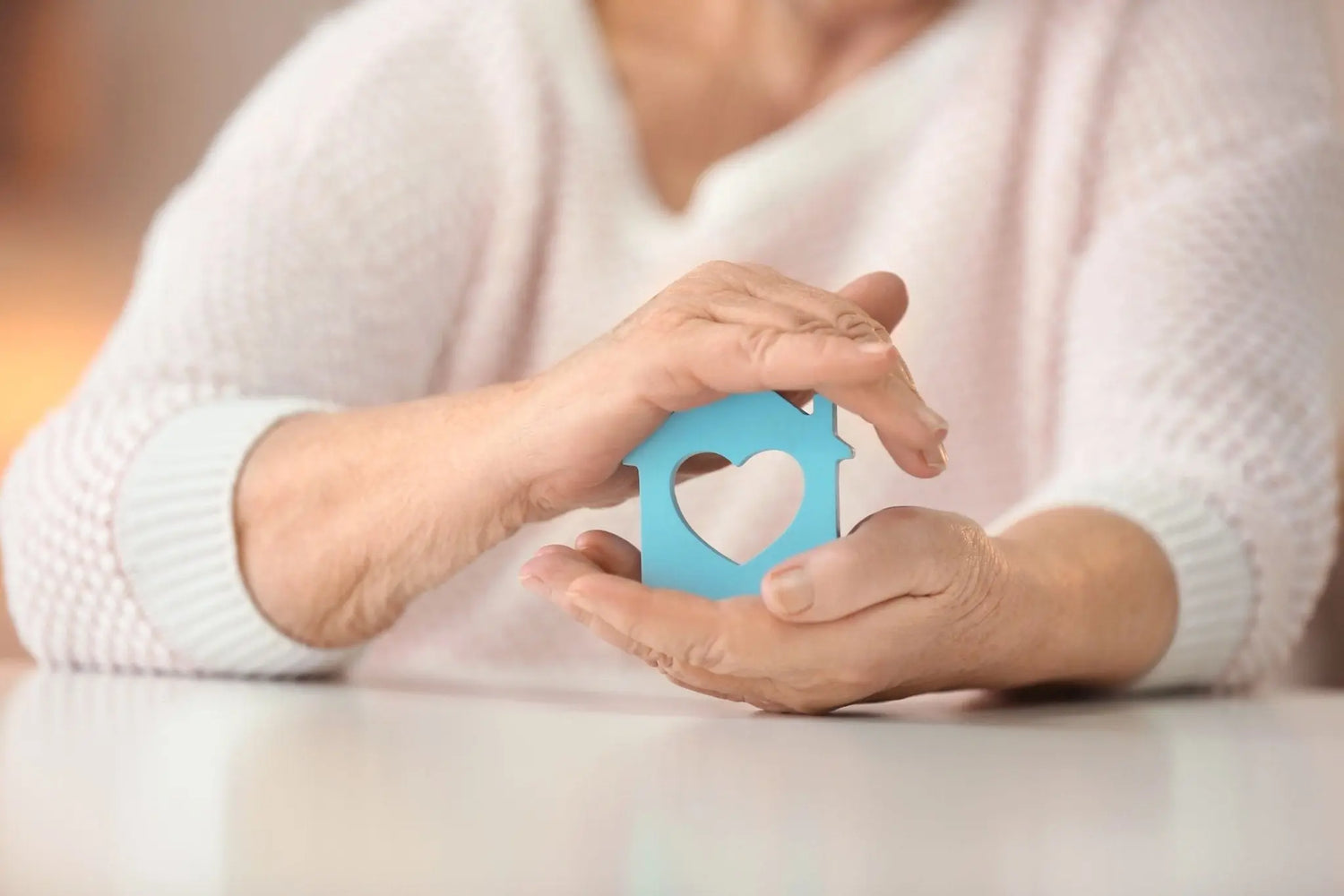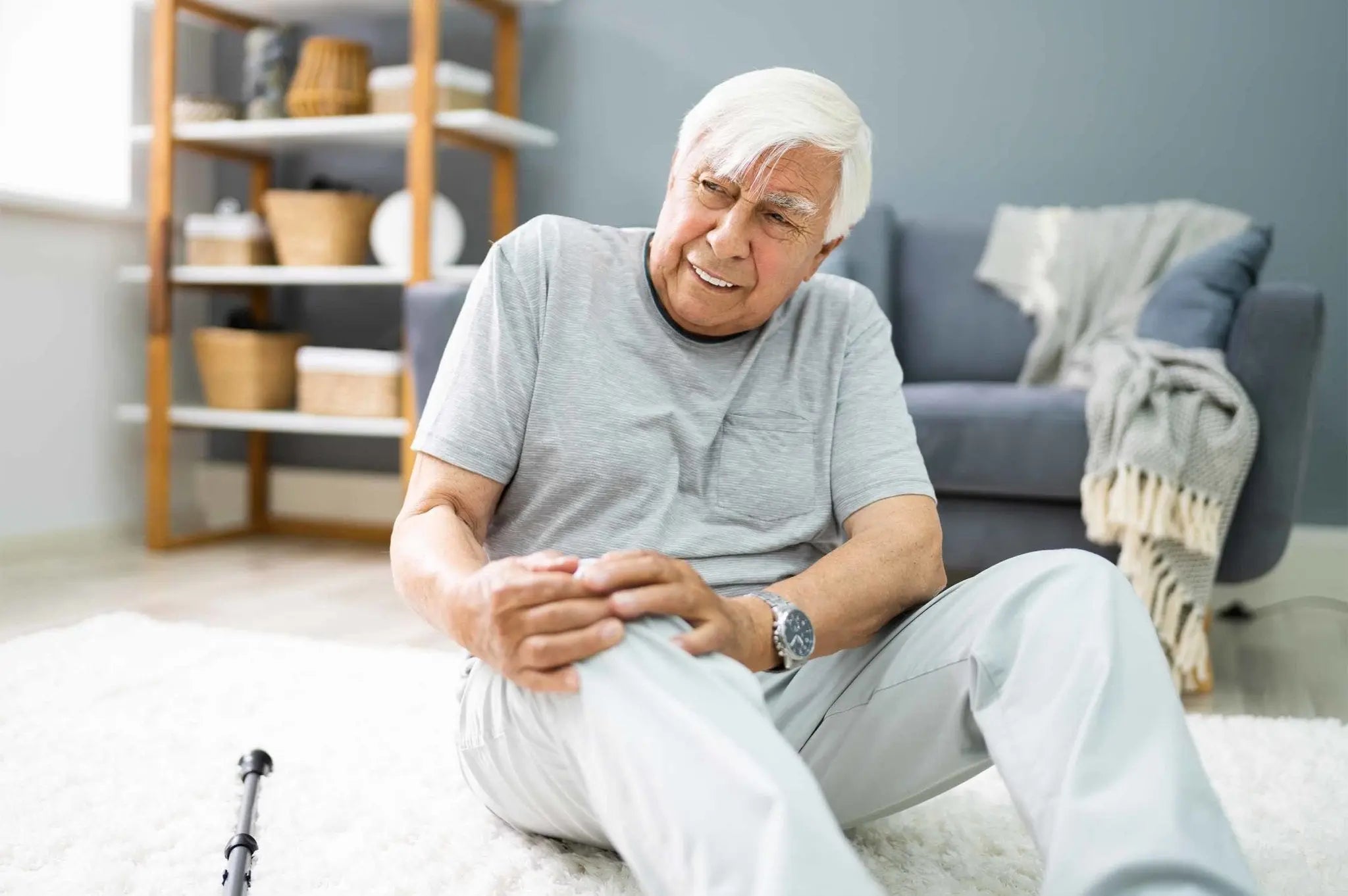Aging at Home: Home Safety for Elderly Parents
If you find yourself stressing out about your elderly parent living alone, you're not the only one. Less aging adults want to move to assisted living facilities or nursing homes. In fact 'the number of older adults living alone grew by 40% over the last 30 years.' This means more adult children are providing long-term care for their elderly parents.
Taking care of aging friends and family can be stressful, knowing they are safe in their home can reduce some of that pressure. If not dealt with, home hazards for elderly can lead to falls, burns, and other injuries. In this article, you'll learn why elderly home safety is important and common home safety hazards for elderly. You'll also learn how to reduce risks factors, and how home monitoring can make keeping your parents safe easier.
Why is Home Safety for Elderly Parents Important?
Your elderly parents are more prone to having weak bones that make broken bones occurring more likely. Because their bones are often brittle it may make it more difficult for them to safely move around unaided.
They may walk slower or need additional support when getting up from a chair or down the stairs. You want your elderly parents to live with minimal restrictions and maintain independence inside a space they feel comfortable.
Being aware of common in-home hazards is the first step to implementing elderly safety at home. It is also important to know where home safety hazards for elderly often occur.
What are Common Home Safety Hazards for Elderly?
Elderly Parent Falling or Slipping
Annually, one-fourth of adults 65 and older experience a fall. Falls are the most common nonfatal injuries associated with hospital admissions among the elderly and the leading cause of fatal injury.
Common Places Your Elderly Parent Falling May Occur
Stairs – Having safe stairs for elderly parents with limited mobility is a step you don't want to miss. Increased Declining physical health, weakened muscles, and worsening eyesight increase fall risk while navigating stairs.How to Make Stairs Safe for Elderly
How Do You Make Bathrooms Safe for Elderly Parents?
Kitchens - Kitchens put the elderly at risk for slipping or losing balance while reaching into a high cabinet.
How Do You Make the Kitchen Safe for Elderly Parents?
Additional steps to help safeguard against your elderly parent falling in the home
Burns and Scalds in Elderly Adults
'Adults over 65 have a worse prognosis than younger patients after scald burns. This is due to aging factors and comorbid medical conditions.'How Do You Lower the Chance of Burns in Elderly Parents?
Choking in Elderly Adults
Choking: 'People over 65 are 7x's more likely to choke on food than children between 1 and 4.'
How Do You Reduce Choking Risks in Elderly Parents?
Other Home Safety Hazards for Elderly and How to Mitigate them
Medication Overdoses and Side effects
Medication Overdose and Side effects: When used or stored incorrectly prescription medicine and OTC drugs can be poisonous.
How Do You Avoid Medication Overdoses in the Elderly?
Carbon Monoxide Poisoning
As people age their sense of smell and hearing often decreases. Unfortunately, this means that your elderly parents are at increased risk of suffering from carbon monoxide poisoning.
How Do You Reduce the Risk of Carbon Monoxide Poisoning in the Elderly?
How Can Home Monitoring Solutions Assist in Creating a Safe Home for Elderly Parents?
Home monitoring systems include features like video doorbells, window and door sensors, and Support and Camera Monitoring Kits. These monitoring solutions allow you to keep an eye on your loved ones even when you can't be with them.
Making your elderly parents' home safe is essential for their health and independence as well as your peace of mind. Learn more about how technology is making caregiving easier here.
MOBI offers home and health monitoring solutions that make life easier. These include sensors, camera monitoring, fall detection alert systems, and more. All MOBI products can be integrated through the MOBI smart app and grow with your family.
Reach out to us today on Facebook or email us at service@getmobi.com. We are happy to answer any questions you have on how home and health monitoring can assist you in your day to day life.



![Preventing Falls in the Home [Infographic] - MOBI USA](http://mobiusa.com/cdn/shop/articles/preventing-falls-in-the-home-infographic-773526.jpg?v=1691770462&width=2048)
1 comment
Auvrey L
Fantastic insights on aging at home and prioritizing senior safety! It’s inspiring to see resources like this from MobiUSA, providing valuable guidance for families navigating the challenges of elderly care. For those seeking additional support and a wealth of information tailored to seniors, I highly recommend visiting SeniorThrive.com. It’s a treasure trove of resources, community support, and expert advice designed to enrich the lives of our senior population.
Leave a comment
This site is protected by reCAPTCHA and the Google Privacy Policy and Terms of Service apply.